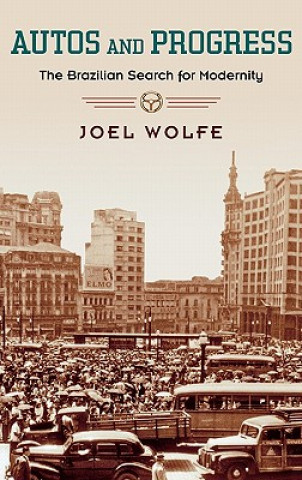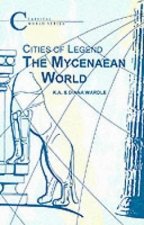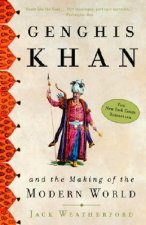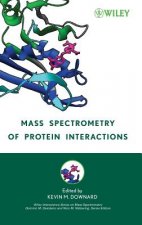
Code: 04516382
Autos and Progress
by Joel D. Wolfe
Autos and Progress studies the automobile as both a tool and a cultural symbol of Brazil's status as a modern "developed" nation. As such it addresses debates on state-making, the role of multi-national corporations in the region, ... more
- Language:
 English
English - Binding: Paperback
- Number of pages: 288
Publisher: Oxford University Press Inc, 2010
- More about this

You might also like
Give this book as a present today
- Order book and choose Gift Order.
- We will send you book gift voucher at once. You can give it out to anyone.
- Book will be send to donee, nothing more to care about.
More about Autos and Progress
You get 126 loyalty points
 Book synopsis
Book synopsis
Autos and Progress studies the automobile as both a tool and a cultural symbol of Brazil's status as a modern "developed" nation. As such it addresses debates on state-making, the role of multi-national corporations in the region, middle-class consumerism, working-class politics, and sports and leisure in the crafting of national identity, among others. Such a study is key for understanding the twentieth century because auto-based transportation became the central facet of Brazilian attempts to gain control over its massive national space. The most obvious expressions of this include the building of Brasilia to be the new, interior national capital, the extensive road building throughout the Amazon in the 1970s, the nation's development of one of the world's leading alternative fuel industries, Brazilian dominance in world Formula One racing, and the fact that the current president, Luiz Inacio Lula da Silva, is a former auto worker and trade union leader. This focus on Brazilians' fascination with automobiles and their reliance on auto production and consumption as keys to their economic and social transformation, explains how Brazil -- which enshrined its belief in science and technology in its national slogan of Order and Progress -- has differentiated itself from other Latin American nations. This embrace of automobility allowed the Brazilian elite to use industrialism and the increased mobility of an auto-based society to attempt to remake the nation's poor into a more homogeneous population. Autos and Progress engages key issues in the Brazil around the meaning and role of race in society and also addresses several classic debates in Brazilian studies about the nature of Brazil's great size and diversity and how they shaped state-making. Autos and Progress unifies Brazilian economics, politics, and culture in the twentieth century. It provides a unique historical context for understanding Brazilian modernism in politics and culture. Moreover, by analyzing the origins of auto-oriented industrialism and consumerism, the book is an economic, cultural and social history of Brazilian attempts to remake the nation into a middle-class democracy. This aspect of the study presents a new interpretation for the rise of Brazil's New Unionism, which was born in Brazil's auto, truck, and bus factories. It also provides important context for understanding the place of the Partido dos Trabalhadores (Workers' Party) in national politics and culture, and the rise of President Luiz Inacio Lula da Silva, a former auto worker.
 Book details
Book details
Book category Books in English Humanities History Regional & national history
50.16 €
- Full title: Autos and Progress
- Subtitle: The Brazilian Search for Modernity
- Author: Joel D. Wolfe
- Language:
 English
English - Binding: Paperback
- Number of pages: 288
- EAN: 9780195174564
- ISBN: 0195174569
- ID: 04516382
- Publisher: Oxford University Press Inc
- Weight: 404 g
- Dimensions: 159 × 235 × 15 mm
- Date of publishing: 04. February 2010
Trending among others
-

Strange Death of Europe
15.23 € -22 % -

The Fourth Turning
20.58 € -6 % -

Beyond Band of Brothers
15.23 € -28 % -

Secret History
11.29 € -28 % -

Diana: Her True Story - In Her Own Words
10.99 € -25 % -

History of the Ancient Near East ca. 3000 - 323 BC 3e
55.61 € -

City of Fortune
14.32 € -22 % -

Short History of England
11.40 € -22 % -

The Great Depression: A Diary
17.86 € -15 % -

Gulag
15.33 € -27 % -

Native American History
20.78 € -13 % -

Hangman's Diary
12.10 € -25 % -

Hezbollah
29.56 € -4 % -

To Hell and Back
16.64 € -22 % -

Complete Pompeii
30.78 € -24 % -

Olympic, Titanic, Britannic
28.15 € -19 % -

With the Old Breed
15.64 € -25 % -

Constantinople
15.13 € -18 % -

Life and Death of Anne Boleyn
22.90 € -4 % -

Venetians in Constantinople
36.43 € -

Few
10.59 € -18 % -

Ninja, The Secret History of Ninjutsu
15.13 € -16 % -

Century of Palestinian Rejectionism and Jew Hatred
9.38 € -16 % -

Kojiki
29.87 € -4 % -

Kaiser Wilhelm II
27.24 € -11 % -

Seven Pillars of Wisdom
11.40 € -20 % -

Later Roman Empire
9.48 € -15 % -

Regime Politics
37.84 € -

Australia: A Very Short Introduction
9.28 € -28 % -

Russia and the Russians
19.37 € -27 % -

Mycenaean World
34.11 € -

Civilization of Europe in the Renaissance
17.35 € -13 % -

Russia Under the Old Regime
13.31 € -28 % -

US HISTORY
11.90 € -1 % -

French Army 1870-71 Franco-Prussian War (2)
16.64 € -10 % -

Iran-Iraq War
51.57 € -10 % -

How to Write an IB History Essay
21.59 € -

Decline and Fall of the Roman Empire: Vols 1-3
60.05 € -28 % -

1812
20.18 € -28 % -

German Order of Battle
22.60 € -

Amazons
12.81 € -18 % -

Midnight at the Pera Palace
16.64 € -17 % -

Hidden War
13.82 € -19 % -

Marie Antoinette
13.72 € -25 % -

Genghis Khan
19.47 € -7 % -

Ten Myths About Israel
13.52 € -35 % -

Ethnic Cleansing of Palestine
12.91 € -25 % -

How to be a Victorian
13.31 € -28 % -

Easy Company Soldier
15.64 € -25 %
Collection points Bratislava a 2642 dalších
Copyright ©2008-24 najlacnejsie-knihy.sk All rights reservedPrivacyCookies







 15549 collection points
15549 collection points Delivery 2.99 €
Delivery 2.99 € 02/210 210 99 (8-15.30h)
02/210 210 99 (8-15.30h)